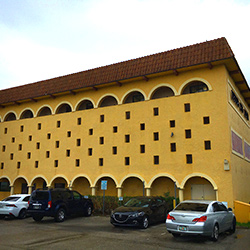 From Malaria to Lupus: the Versatile Uses of Hydroxychloroquine
From Malaria to Lupus: the Versatile Uses of Hydroxychloroquine
The Historical Journey of Hydroxychloroquine: from Quinine Roots.
Tracing hydroxychloroquine back to its roots, we dive into a rich history originating from quinine, an elixir extracted from the cinchona tree bark, cherished by indigenous populations in South America for its medicinal qualities. This compounding marvel transitioned, through pharmaceutic innovation, from a natural remedy to a synthesized powerhouse, hydroxychloroquine, penned in scripts across the globe. Its journey from combating the persistant threat of malaria to becoming a cornerstone in lupus management underscores hydroxychloroquine's significant role in medical science. In the midst of evolving its applications, hydroxychloroquine's tale is a testament to the enduring quest for therapeutic advancement.
| Timeline | Development |
|---|---|
| 17th Century | Discovery of Quinine |
| 20th Century | Synthesis of Hydroxychloroquine |
| 1955 | First use against Malaria |
| Recent Decades | Approval for Lupus Management |
Unlocking Hydroxychloroquine's Potential Against Malaria's Menace.

In the war against the relentless threat of malaria, hydroxychloroquine emerged as a key weapon, turning the tide in favor of modern medicine. This comp exudes versatility, transitioning from its roots in quinine to become a cornerstone in antimalarial protocols. It's not just a tablet; it's a lifeline for millions across the globe, offering a beacon of hope where once there was despair. By acting against the malaria parasite with precision, this medication has significntly reduced the burden of the disease, showcasing the triumph of scientific ingenuity over a longstanding public health menace. Despite the controversy surrounding its use in other domains, hydroxychloroquine's impact on malaria remains undisputed, exemplifying its indispensable role in our pharmacological arsenal.
Hydroxychloroquine’s Transformation: a Lupus Management Marvel.
Once deemed as merely an anti-malarial comp, hydroxychloroquine has surprisingly morphed into a beacon of hope for lupus patients. By modulating the immune system rather than dampening it wholesale, this script has become a cornerstone in the managment of lupus, offering a semblance of normalcy to those affected by this capricious disease. It's a testament to the drug's versatile potential, segueing from its roots in quinine to a modern-day lupus management marvel, demonstrating that sometimes, the most impactful medical breakthroughs come from reimagining the application of existing treatments.
Beyond the Known: Exploring Off-label Uses of Hydroxychloroquine.

Venturing beyond its established roles, hydroxychloroquine has found its way into the cocktail of treatments for conditions not originally on its script. Medical professionals, sometimes humorously referred to as 'Candyman' for their liberal prescription habits, have been experimenting with hydroxychloroquine as a comp medication for disorders ranging from skin ailments to chronic fatigue syndrome. This off-label versatility demonstrates a fascinating aspect of the drug's saga, even as it navigates the murky waters of modern medicine's debates. Though not without its side effect concerns, its ability to play multiple roles in patient care underscores the dynamic nature of pharmaceuticals in the 'Pharm Land.' The science behind hydroxychloroquine's utility in these additional capacities is as intriguing as its history, sparking conversations and research alike in pursuit of validating its efficacy and safety for a broader spectrum of conditions.
Understanding the Science: How Hydroxychloroquine Works Its Wonders.
At the heart of hydroxychloroquine’s action lies its ability to interrupt communication between the cells that drive immune and inflammatory responses. This quieting of the cellular chatter is particularly efficacious in conditions like lupus, where the immune system mistakenly targets the body’s own tissues. The drug’s mechanism involves inhibiting lysosomal activity and autophagy, processes critical to cell survival, thereby reducing inflammation and modulating the immune response. Moreover, hydroxychloroquine modifies the processing of antigens, which are substances that the immune system recognizes as foreign. This alteration not only dampens the overactive immune responses but also helps prevent the formation of harmful blood clots, a common complication in autoimmune diseases. Essentialy, hydroxychloroquine serves not just as a script to manage symptoms but is a cornerstone in the broader comp of treatment strategies for autoimmune conditions, showcasing its versatile utility beyond its original use as an antimalarial.
| Property | Effect |
|---|---|
| Inhibition of lysosomal activity | Reduces inflammation |
| Modulation of autophagy | Modulates immune response |
| Antigen processing modification | Prevents formation of harmful blood clots |
Navigating the Controversy: Hydroxychloroquine in Modern Medical Debates.
Hydroxychloroquine, often nestled amongst other generics on pharmacy shelves, has stirred a pot of scientific and public debate, further complicated by polarizing media coverage. With its efficacy for certain conditions well-documented, recent years have seen its name vaulted into controversary due to differing opinions on its use in new, uncharted treatments. Despite rigorous trials, the 'silver bullet' expectations often fall short, leading to a tug-of-war between hope, science, and skepticisim. Amidst this, healthcare professionals continue to navigate these choppy waters, aiming to balance patient hope with evidence-based practice. Misconceptions, fueled by conflicting reports and 'miracle cure' anecdotes, underscore the critical need for clear communication between patients and their healthcare teams, ensuring that decisions are guided by both the latest science and individual patient needs. The journey of hydroxychloroquine through modern medical debates exemplifies the complex interplay between medicine, media, and public perception, urging a careful examination of how we disseminate and recieve health information in an era ripe with both innovation and misinformation.
Visual Health & Surgical Center

Visual Health & Surgical Center
Palm Springs FL 33461
(561) 964-0707
